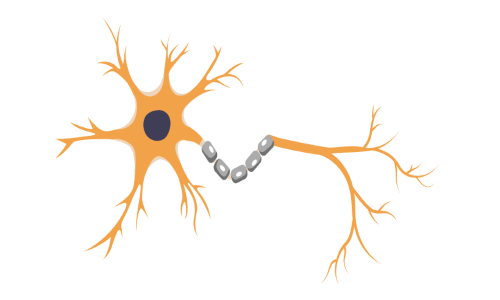
EMDR Skills for Trauma Treatment
EMDR CEU
Date course created: November 2019
EMDR is a set of evidence-based, powerful treatment tools for trauma and PTSD, as well as other mental health conditions. While EMDR skills have been popular for many years, training in these skills can be difficult to find, and is often cost-prohibitive. This affordable 2-day course introduces attendees to the original 8-phase model of EMDR and teaches participants how to conduct each of the eight phases.
NOTE: Our EMDR programs and associated credentials are exclusively affiliated with and available through Mind Works Professional Education, Inc. and Online CE Credits. EMDR certification is provided by various entities across the US and abroad, but continuing education certification is not regulated nor owned by any one particular education provider, association, or broker. Individual state regulatory authorities solely determine scope, competency, and legal right to practice, as is true for any other therapy modality (CBT, DBT, etc.). To determine the quality and legitimacy of your investment, we encourage you to look at the experience and education-level of your trainer, cost of the program, ongoing requirements if there are any, quality-level of the learning platform, and established reputation of the education provider.
***Follow-up Course: Advanced EMDR Skills for Complex Trauma***
**This is a 8.75-CE noninteractive, self-paced online video course delivered in home study format via an industry-standard online learning platform**
Agenda:
Video 1:
00:00 – 00:30: Intro to Trauma and EMDR; Chronic Stress- Effects, Responses; Resources
00:30 – 01:09: EMDR and Dissociation; Trauma; Brain Functions
01:09 – 01:30: Memory Encoding; Fear Responses; Chronic Stress; Clarifying EMDR Concepts
Video 2:
00:00 – 00:20: Techniques in EMDR; Brain Areas; DID; The Cingulate
00:20 – 00:53: Brain Function; Limitations of DSM-5; Insurance; Mirror Neurons
00:53 – 01:06: Sensory Feedback; Exploring Empathy; Addressing Avoidance in Therapy
Video 3:
00:00 – 00:16: Self-Perception and Neural Networks; Brain Change
00:16 – 00:39: Addressing Substance Use; Trauma Networks; Desensitization
00:39 – 00:56: Somatic Targeting; EMDR Terminology; Introduction to SUDS
00:56 – 01:24: Target Sequence Planning in EMDR; EMDR Phases and Stages
Video 4:
00:00 – 00:32: Introduction and Understanding the Eight Phases
00:32 – 00:43: Transitioning to Positive Cognitions
00:43 – 00:57: Intro to Target Mapping; EMD Processing Techniques
00:57 – 01:05: Understanding SUDS, Challenges; Next Steps
Video 5:
00:00 – 00:27: Resourcing Techniques; Breathing Techniques
00:27 – 00:48: Self-Soothing Techniques; Autogenic Training; Client Comfort
00:48 – 01:11: The Concept of Container; Externalization; Resourcing Techniques
01:11 – 01:27: Bilateral Movement; Regulations and Competence in EMDR Practice
Video 6
00:00 – 00:28: Negative Cognition; Patient Resistance; Bilateral Stimulation
00:28 – 00:45: EMDR Effectiveness; Memory Consolidation; Memory Recall
00:45 – 01:16: Specific Disorders; EMDR Phases; Body Awareness
01:16 – 01:41: Desensitization; Managing Emotional Reactions; Practical Application
Video 7
00:00 – 00:10: Goals; Switching Phases; Body Scanning; Positive Cognitions
00:10 – 00:20: When to Stop EMDR; Closure; Preferences with Clients
00:20 – 00:25: Incomplete Sessions; Next Sessions; New Targets; Practical Application
Objectives :
a). After completing this training, participants will be able to establish the role of the autonomic nervous system in trauma symptomology.
b). After completing this training, participants will be able to characterize the potential neurobiological mechanisms of change in the empirically validated EMDR approach.
c). After completing this training, participants will be able to specify how EMDR techniques can build dual awareness in clients to treat the avoidance that makes trauma and anxiety treatment challenging.
d). After completing this training, participants will be able to communicate the 8 Phases of the EMDR protocol.
e). After completing this training, participants will be able to determine which clients with whom you should use EMDR.
f). After completing this training, participants will be able to communicate the central principle of the Adaptive Information Processing Theory and establish how it informs the EMDR approach.
g). After completing this training, participants will be able to analyze resourcing strategies from EMDR that clinicians can use to help facilitate the processing of trauma.
h). After completing this training, participants will be able to specify the steps clinicians must take to emphasize safety during EMDR sessions.
i). After completing this training, participants will be able to characterize how EMDR techniques can be used to reinforce and activate positive neural networks.
j). After completing this training, participants will be able to evaluate strategies that can help foster the critical connection between client and therapist in EMDR therapy.
k). After completing this training, participants will be able to establish the order of operations for attachment-based EMDR treatment to resolve relational trauma.
Target Audience:
The target audience for this event includes psychologists, licensed clinical social workers, licensed counselors, MFT’s, and other clinical mental health professionals.
Instructional Level: Intermediate
Instructor(s): Jennifer Sweeton, PsyD, MS, MA
Material Author(s): Jennifer Sweeton, PsyD, MS, MA
For additional information about this course, the instructors, or the material authors, please contact Content Assistance at content@onlinececredits.com.
Course Materials & Delivery Method:
- Course materials – The course is composed of a recorded presentation and written materials (e.g. a slide deck and/or other worksheets, manuals, or handouts as provided by the instructor). The slide deck and any additional worksheets or handouts (as provided by the instructor) are made available inside the Lesson module after a course is purchased.
- Delivery Method – this course is a recorded asynchronous, self-paced webinar training, and there is no access time limit or due date to complete it once enrolled. The enrolled learner will stream the recorded presentation and view the materials from their internet connected device via an industry-standard online learning platform.
CE Approvals:

Online CE Credits has been approved by NBCC as an Approved Continuing Education Provider, ACEP No. 6795. Programs that do not quality for NBCC credit are clearly identified. Online CE Credits is solely responsible for all aspects of the programs.

Mind Works Professional Education, Inc. DBA Online CE Credits, #1974, is approved as an ACE provider to offer social work continuing education by the Association of Social Work Boards (ASWB) Approved Continuing Education (ACE) program. Regulatory boards are the final authority on courses accepted for continuing education credit. ACE provider approval period: July 23, 2024 – July 23, 2025. Social workers completing this course receive 8.75 clinical continuing education credits.
Other Helpful Information:
- Refund & Cancellation Policy – you may review this policy at any time by clicking here.
- Accessibility Accommodations – if you require a reasonable accommodation for any reason, please email your request to cc@onlinececredits.com
- Course Completion Requirements – 1.) View the entire Lesson module (accessible from the main course page), to include the embedded and/or linked presentation video(s), slide deck, additional materials, and/or links to any shared video clip(s) that may have been edited from the presentation video(s) to comply with copyright laws. 2.) Click into the Quiz module accessible from either the main course page or the Lesson page and complete the Quiz with an 80% or better pass rate. 3.) Complete the course evaluation – you’ll be sent to the evaluation automatically once you successfully pass the Quiz.
- Posttest Requirements – you must answer 80% or more of the Quiz questions correctly to pass. If you fail to pass the first time, you may attempt the quiz again until you are able to pass with a score of 80% or better. Quizzes are graded instantly and automatically by the learning management system once your attempt is submitted.
- Certificate of Completion – certificates of completion are automatically generated – downloadable from your Dashboard and emailed to you – once you view the Lesson materials and complete the Quiz and the course evaluation.
- How to Enroll – Login to the website first if you already have a user account. If not, you will create your permanent user account login information during course enrollment. Select the appropriate course library using the top menu of the website. Once inside your chosen course library, find and select your desired course to be taken to the main course page. Click the button on the top banner to enroll. When the order window pops up,
- Suggested Browsers: Updated version of Google Chrome, Microsoft Edge, or Apple Safari.
- Recommended Network: Home wifi, ethernet, or a public wifi with VPN (Note: agency or corporate networks are often equipped with restrictive firewalls that may adversely impact your experience on our platform).
- Recommended speed/bandwidth: Minimum download speed > 20Mbps and minimum upload speed > 6Mbps.
- enter your details and place your order. You will be emailed an enrollment confirmation message, and you’ll be sent to a landing page instructing you how to begin your newly enrolled course.
- System Requirements –
- Recommended Devices: Desktop, Laptop, or Tablet computer. (Note: Our platform is mobile responsive and may be fully accessed from a connected smartphone).






